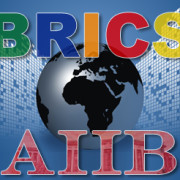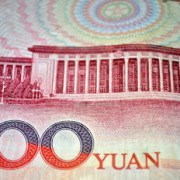Archive | Finance sector development RSS feed for this section
Finance sector development
 Finance sector development
Finance sector development
 Finance sector development
Finance sector development
 Finance sector development
Finance sector development
 Finance sector development
Finance sector development
 Finance sector development
Finance sector development
 Finance sector development
Finance sector development
 Finance sector development
Finance sector development
 Finance sector development
Finance sector development
 Finance sector development
Finance sector development

To invest, or not to invest? That is the problem in Myanmar

Myanmar opened a new chapter in its history in November 2010 when it adopted its open-economy policy. Since then, an impressive array of reforms has been implemented. Excitement about this transition has been widely shared among political, economic, and investment communities around the world. However, Myanmar’s sustainable and inclusive growth depends on it maintaining this momentum during its transition—particularly inflows of foreign direct investment.
Increased lending to SMEs aids financial stability

A key lesson of the 2008 global financial crisis (GFC) was the importance of containing systemic financial risk and maintaining financial stability. At the same time, developing economies are seeking to promote financial inclusion, such as greater access to financial services for low-income households and small firms, as part of their overall strategies for economic and financial development. This raises the question of whether financial stability and financial inclusion are, broadly speaking, substitutes or complements. In other words, does the move toward greater financial inclusion tend to increase or decrease financial stability?
The NDB and AIIB initiatives sound a wake-up call for global finance

July 2014 marked the seventieth anniversary of the Bretton Woods conference, which laid the foundation for the post-WWII international financial system. The conference established the IMF to stabilize the world economy and the World Bank to finance post-war reconstruction. Both have evolved into pillars of present-day global finance.
Globalizing the RMB? Beijing appoints three new clearing banks in London, Frankfurt, and Seoul

In the span of three weeks from late June to early July 2014, the central bank of the People’s Republic of China (PRC) appointed three new RMB clearing banks successively for London (China Construction Bank), Frankfurt (Bank of China), and Seoul (Bank of Communications). The three new clearing banks join the existing group of RMB clearing banks of the Industrial & Commercial Bank in Singapore: and the Bank of China for Hong Kong, China; Macao, China; and Taipei,China.
Emerging Asia should brace for higher global interest rates

The US Fed has been winding down its bond purchase program, widely known as “quantitative easing,” since December 2013. The program was introduced in the wake of the 2008 global financial crisis to fight the recession and foster a rapid economic recovery. With the improvement in the US economy, the Fed suggested at its policy meeting in March that the program may end this coming fall and it may start raising interest rates about six months from then.
What to look out for in Asian bond markets in 2014

2014 is shaping up to be another challenging year for bond markets in Asia after a see-saw 2013 which saw prices rise at the start of the year, and then fall back on news that the US Federal Reserve plans to reduce or ‘taper’ its quantitative easing operations.
E-commerce in Asia brings international price arbitrage opportunities

Cross-border e-commerce is booming in the Asia and Pacific region. And exchange rate fluctuations play a key role in these transactions. In their quest for the best deals, consumers in the region are taking advantage of exchange rate movements, and shop abroad whenever the exchange rate is favorable. Our research proves that short-term international price arbitrage is occurring—an important finding for monetary policy and the private sector.
US dollar outlook: Secular stagnation and the threat from the East

In the eyes of many commentators, the US dollar’s reign as the global reserve currency is under threat from two angles. The first comes from within the US—a permanent deficiency in demand or secular stagnation; and the second from the People’s Republic of China (PRC), and in particular from a fully convertible yuan. In a recent seminar tour, which covered the Asia and the US, including the Asian Development Bank Institute, we spelled out why these fears are overdone. Far from being in decline, the US is in the ascendancy in our view. We summarize these arguments here.
What should Europe do to fix its financial system?

Over five years after the onset of the 2008 global financial crisis, the EU financial system remains in a fragmented state. Banks do not lend to each other across borders without asking for a significant premium. In the larger eurozone countries, cross-border retail banking remains a negligible source of credit and thus could not compensate for the dysfunctional interbank market. As a result, in many European countries, credit for households and businesses—who mostly rely on banks rather than capital markets for financing—remains costly and limited, inhibiting opportunities for economic growth in the region.
Banking crises and ‘Japanization’: Origins and implications

Recent research has found that economic recoveries from banking crises tend to be weaker and more prolonged than those from traditional types of deep recessions (see for example IMF 2009). Japan’s “two lost decades” perhaps represent an extreme example of this, and the experience has now passed into the lexicon as “Japanese-style stagnation” or “Japanization” for short. A long period of economic stagnation during peace time is not new, particularly among developing countries; the “lost decade” of Latin America in the 1980s is just one example. But Japanization was a surprising phenomenon observed in a mature market economy where the authorities were supposed to have sufficient policy tools to tackle banking crises and manage the economy.


Search
Subscribe / Connect to Asia Pathways
Subjects
- Accelerating Progress in Gender Equality
- Addressing Remaining Poverty and Reducing Inequality
- Agriculture and natural resources
- Capacity development
- Climate change
- Economics
- Education
- Energy
- Environment
- Finance and Innovation
- Finance sector development
- Gender
- Globalization and Economic Stability
- Governance and public sector management
- Health
- Human Capital Development for Inclusive Growth and Shared Prosperity
- Industry and trade
- Information and Communications Technology
- Infrastructure
- Making Cities More Livable
- Miscellaneous
- Population
- Poverty
- Private sector development
- Regional cooperation and integration
- Sanitation
- Social development and protection
- Strengthening Governance and Institutional Capacity
- Subjects
- Transport
- Uncategorized
- Urban development
- Video Blog
- Water
Recent Posts
- The Promise and Perils of Mother Tongue-Based Education
- From Crisis to Resilience: The Evolution of the Banking Sector in Asia and the Pacific
- Tariffs on the Table: What Could Be Asia’s Next Move?
- Investing in Childcare a Win for Women and the Economy
- Flush and Flourish: Upgraded Toilets Can Transform Lives in Rural Asia




Recent Comments